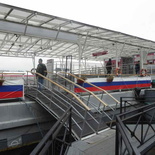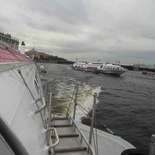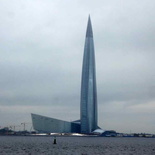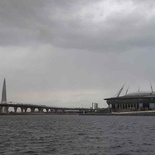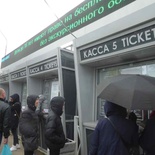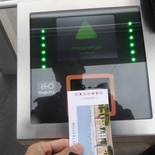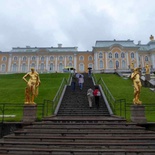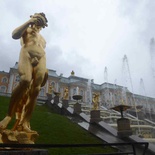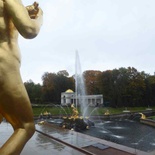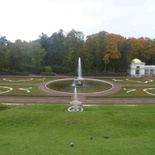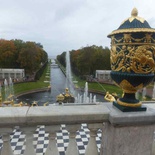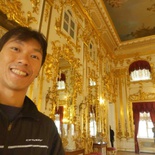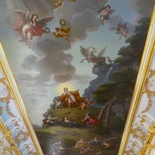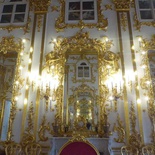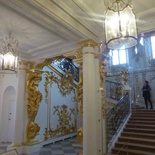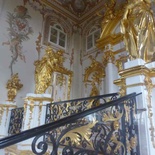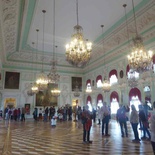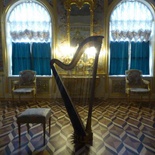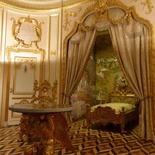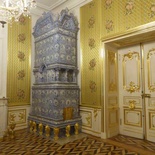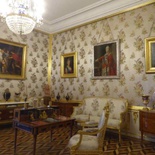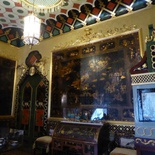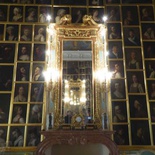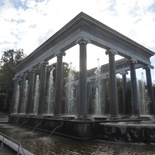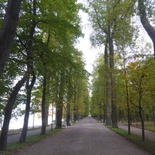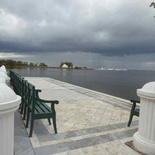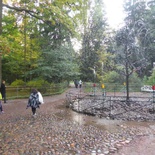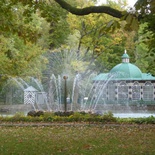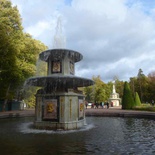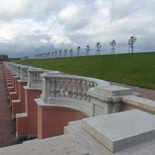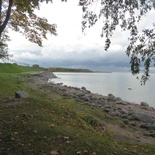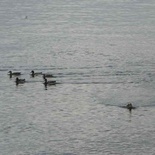St Petersburg Peterhof Grand Palace is a majestic palace located outside St Petersburg city in Russia. The palace ground are surrounded with large lush manicured gardens and impressive fountains. It is said to be Versailles of Russia. Let’s check it out.
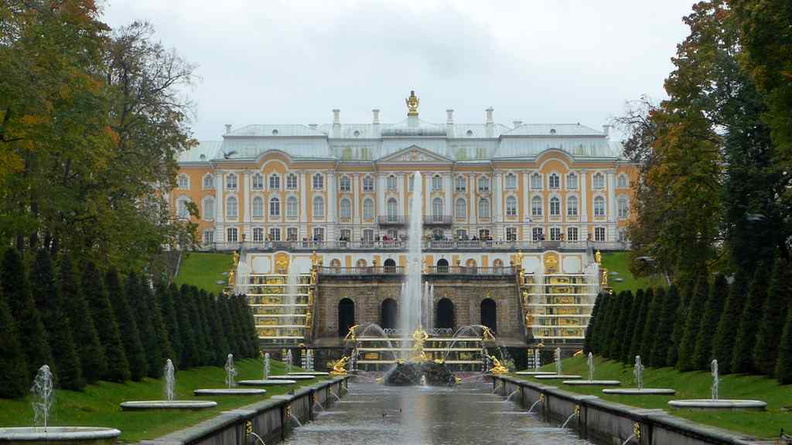
Getting there
Peterhof Grand Palace geographically sites about 25km west of St Petersburg city. The quickest way to Peterhof Grand Palace is to take a hydrofoil boat ferry. There a couple of ferry tour operators which does return trips from the heart of the city and back.
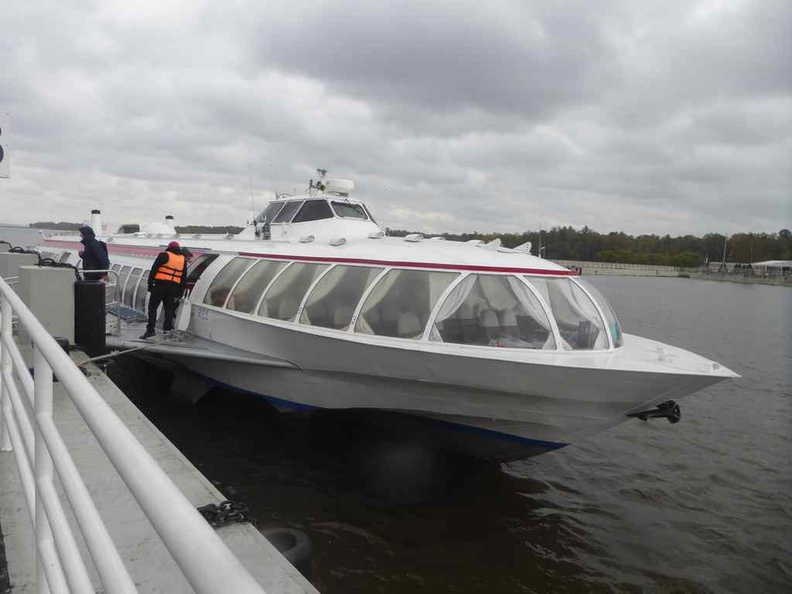
An operator I researched and went with on my trip operates from a boat ferry point berth by the embankment of the State hermitage museum winter palace. They are situated opposite the iconic Kolonna columns along the Neva River artery.
The ferry ride is affordable and gets you there in-style and under 40 minutes, freeing you up an additional hour of exploration time to as going there by road. They operate from 10.30am to 6.00pm, with ferries running every 30 minutes. A return trip costs about 1400 RUB (about $20 USD). In comparison, a journey via bus can take you upwards of an hour and a half, to two hours to get there.
About 20 km ferry ride taking, here you pass by notable landmarks, such as an industrial ship berth area, with a couple of navy ship on-dock, as well as the Gazprom Arena and a road bridge by it.
Ticket prices
The palace itself opens daily 10:30 am to 7 pm, with last admission is at 5:45 pm. It has extended hours till 9 pm on Thursdays. The attraction is closed every Mondays. Walk-in admission cost 550 Rubles and an extra RUB 500.00 for an audio guide (which is not essential). There are no incentives to pre-purchase your tickets and it is never crowded to have to do so.
Also, a thing to note that entry point to the gardens by boat brings you direct into the palace Lower Gardens ticketing counter of the Grand Palace. There is no way around here to the free upper gardens. However, this should not be a worry as the lower gardens are what you are primarily should be here for.
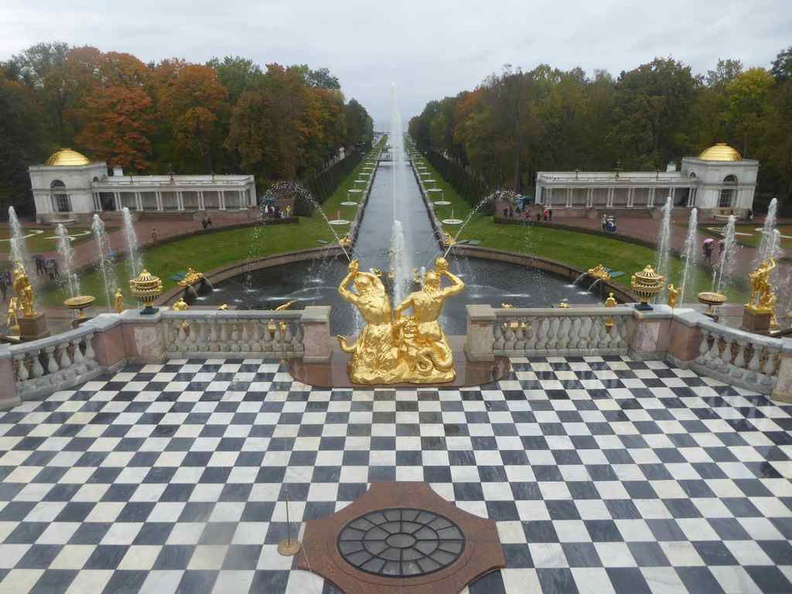
The Versailles of Russia
A bit of history on the palace. Notably, construction work on the establishment started in the 17th century commissioned by Peter the Great. However, it was halted after Peter’s death in 1725. It was not until being abandoned for almost 15 years later to 1740 where Peter’s daughter Elizabeth came to the throne and resumed construction. The palace grounds today is still made up of two main areas, the upper and lower gardens of Peterhof.
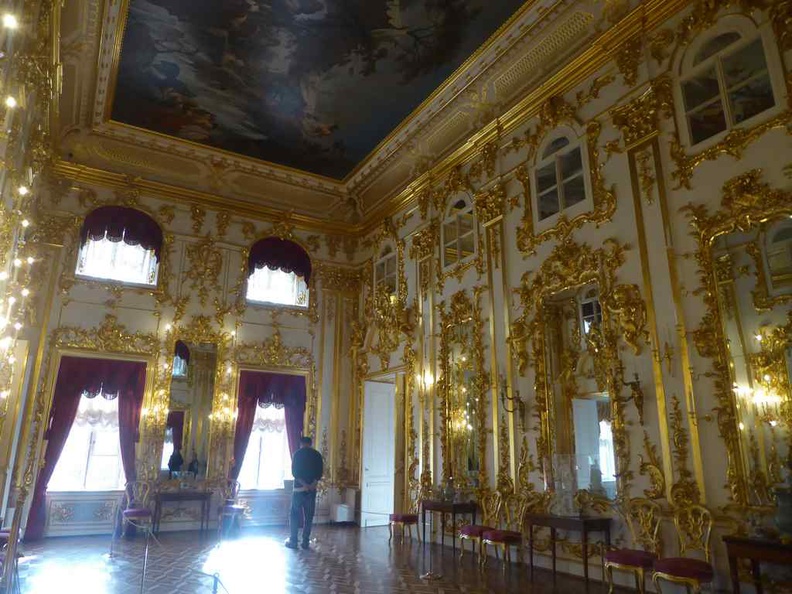
On arrival and off the jetty, you can see one of the Monplaisir Palace bathhouse and gardens. It is otherwise known as the Sea terrace Bath Block. Past the ticketing counters, you enter a visitor amenities area with seating beaches and toilets.
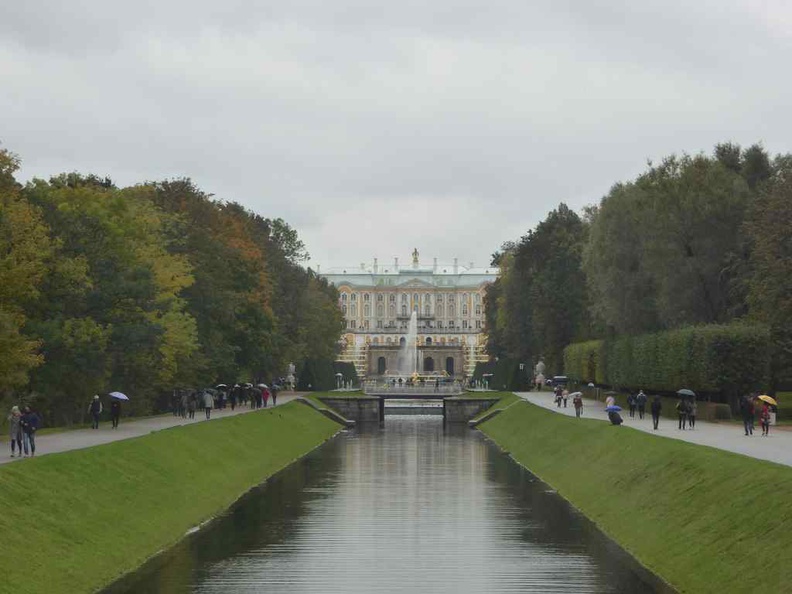
Entering the palace grounds
A wooded area greets you thereafter as you head further into the palace gardens. Here, pass through a series of bayside gardens and a long straight long drainage like stream canal which leads up to the palace up-hill. You can find some resident swans and ducks here too.
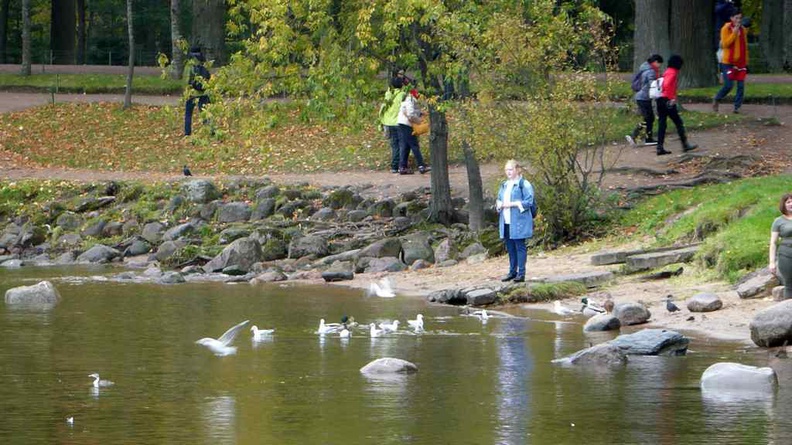
The main Louis XIV’s gilded palace and garden is themed just like the de Versailles in France. Here, you get nicely ornamental palace gardens with fountains with the Peterhof palace sitting in the center with state rooms nicely decorated,
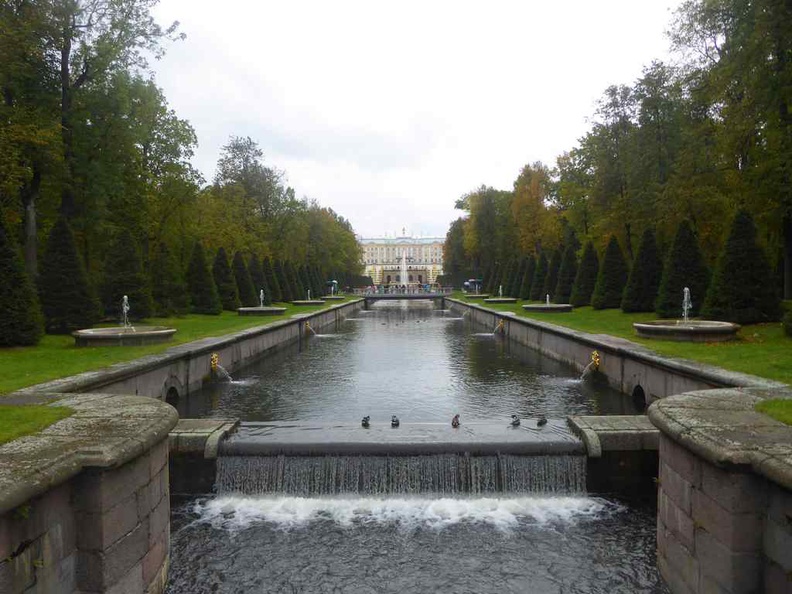
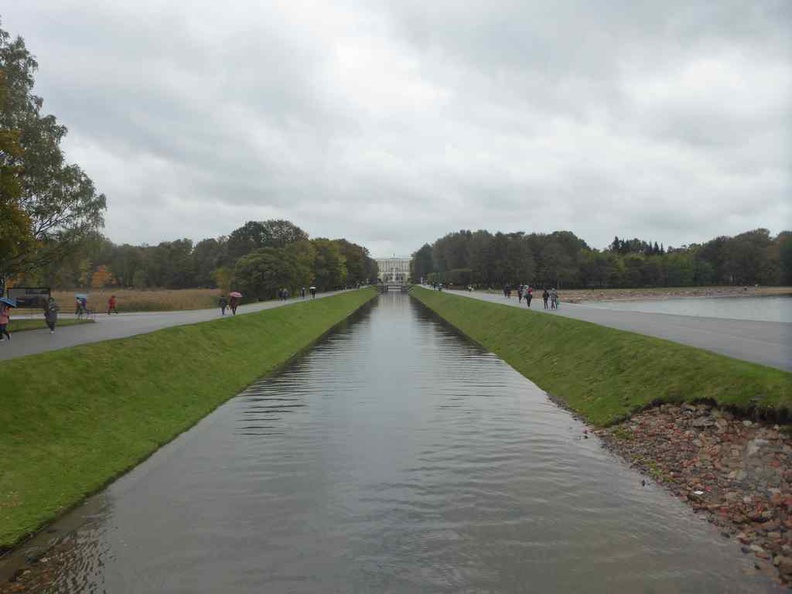
Furthermore, the first of the two part of the St Petersburg Peterhof Grand Palace is firstly a publicly accessible open gardens, as well as a paid “Lower” gardens. The enclosed paid area grants you access to the main central fountain and a tour inside the palace, which is enough to keep you busy for a day in-entirely. Just keep in mind that there is no re-entry when you exit the paid areas lower garden area.
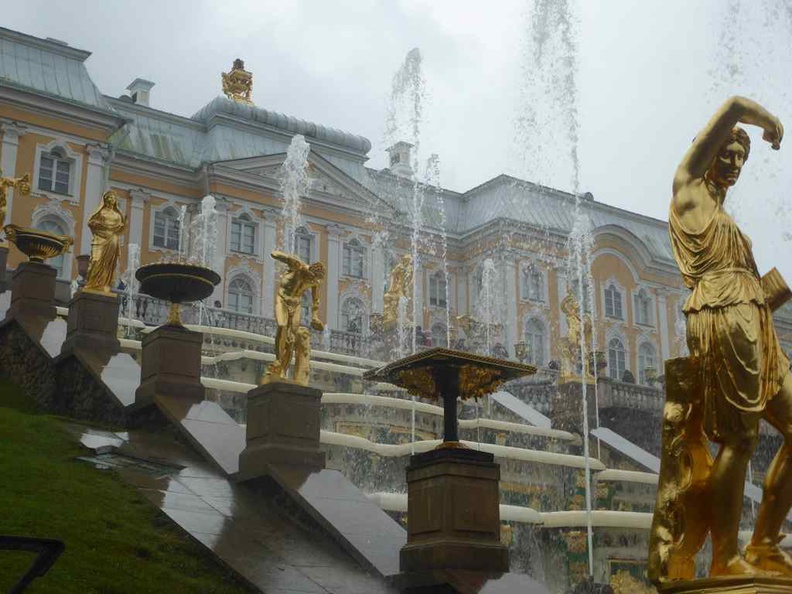
The Grand Cascade and Samson Fountain
The main attraction of the Peterhof Grand Palace is the main fountain and Grand Cascade. The fountain is massive and sits centered in front of the grand palace. Moreover, the Samson Fountain shoots a vertical water jet towering over 20 meters in height from the lion’s sculpture mouth. Notably, the Grand Cascade is modeled on one constructed for Louis XIV at his Château de Marly.
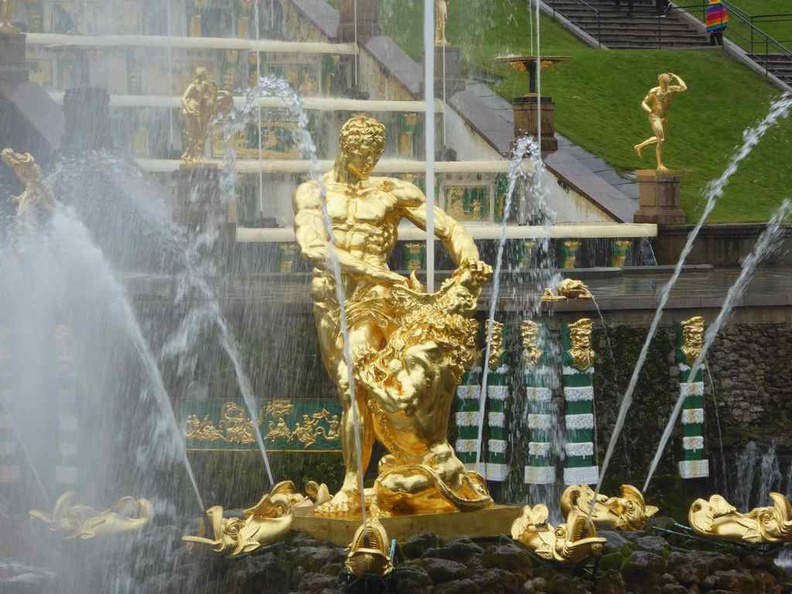
A natural fountain
Interestingly, the fountains itself are a technological achievement itself. All of the fountains here including the main Samson fountain operates by gravity and without the use of pumps. Notably, water is supplied from fresh natural springs and collects in reservoirs located in the Upper Gardens. The location of the upper gardens at the level where the palace sits creates a pressure difference from a high-elevation source.
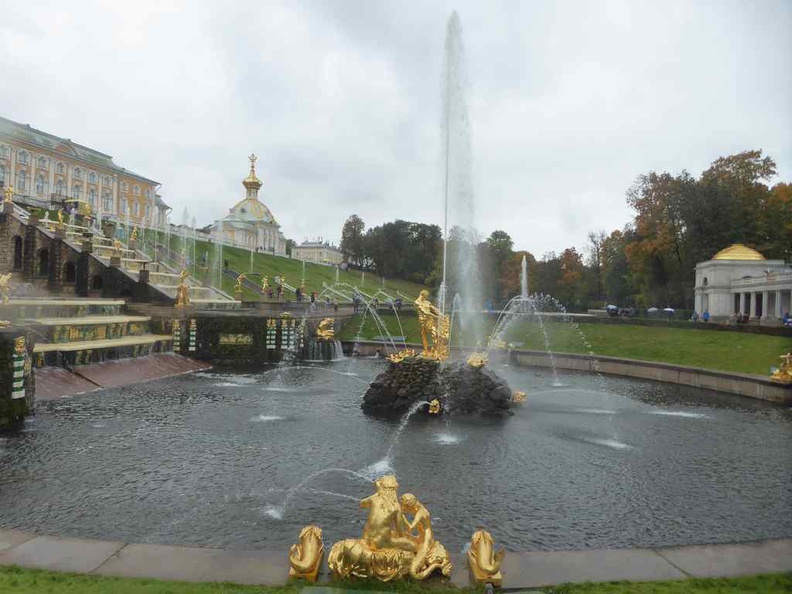
Also, water from up there flow and is what drive most of the fountains of the Lower Gardens, including the Grand Cascade. Remarkably, the Samson Fountain draws water from a special aqueduct spanning over 4 km in length. It is an engineering marvel by itself.
This majestic fountain is an icon and offers great photo opportunity which strongly justifies the entrance fee to enter the paid gardens. Humorously, unlike the French counterpart all the statues in this Russian fountain are all properly clothed and covered in the nether regions, making them somewhat “family-safe” but still otherwise suggestive.
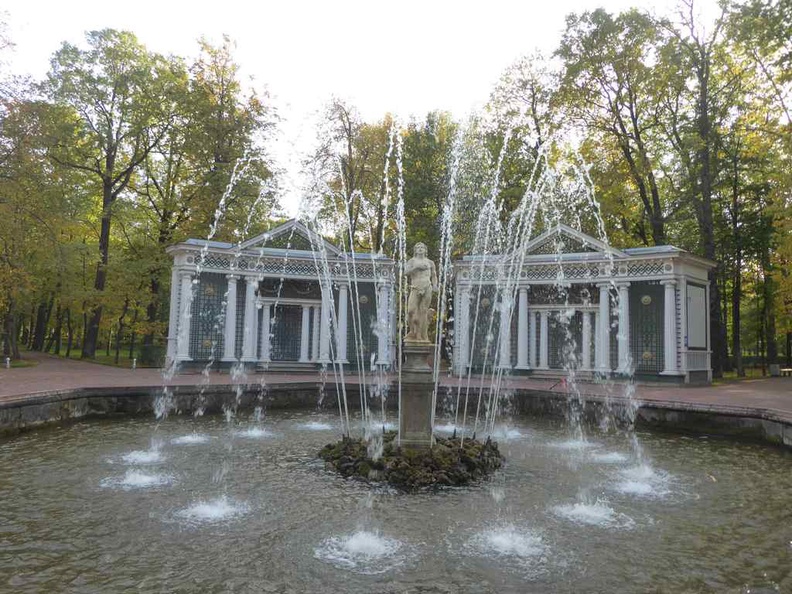
In addition to the main fountain are a couple of small pockets of fountains littered throughout the gardens. Most mimic early geek style architecture with circular fountains, there is also a garden Fountain devoted to Adam and Yeva, complete with manicured flowerbeds in the gardens I am going to touch on later.
Inside the Peterhof Grand Palace
Sitting center piece at the top of the Grand cascade staircase is the Peterhof Grand Palace itself. The building is decked in white with prominent edges of gold trimmings. It looks lavish.
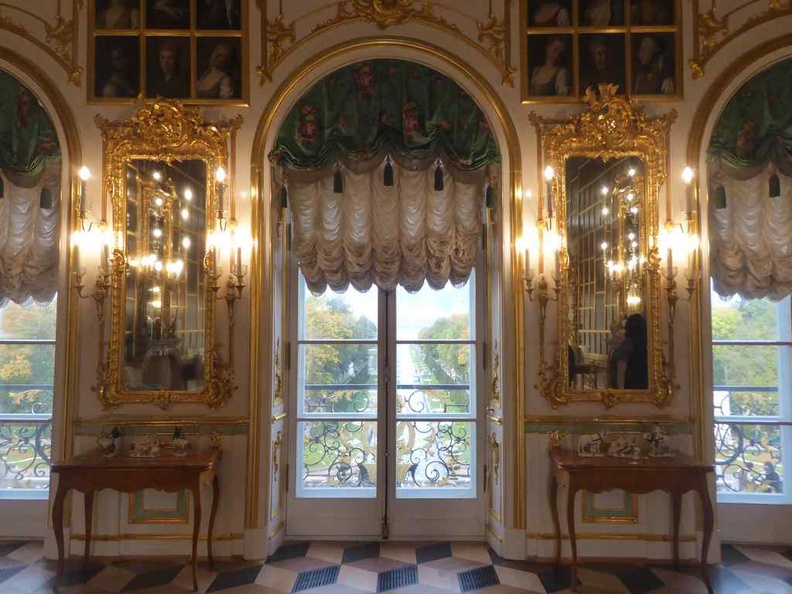
Also, the palace overlooks the grand fountain facing the sea. A short stair climb past the fountains brings you to a balcony front of the Palace. From the stair case top, you can catch aerial view of Peterhof Palace (main building) and the upper garden.
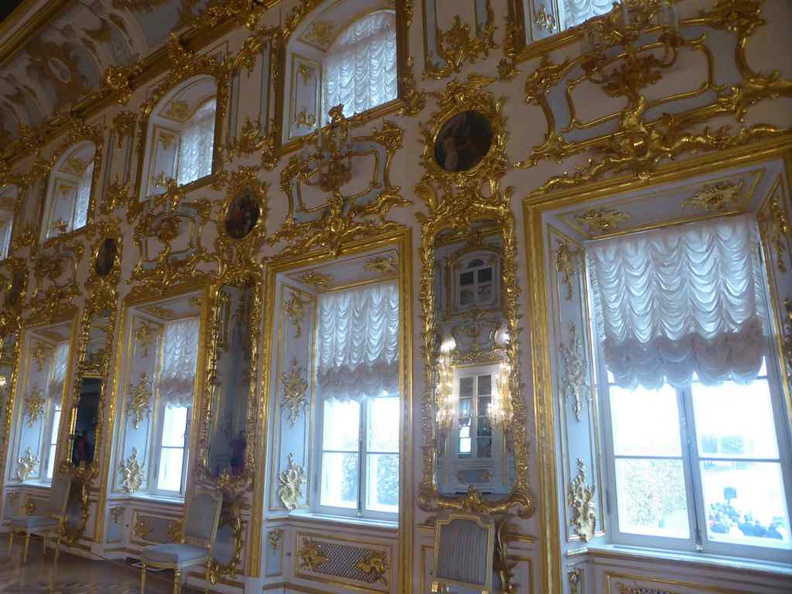
Internally, the Palace building itself is not very big, it sits about the size half of a soccer field. However, it is very well furnished and decorated within. There are a couple of large cavernous halls, presumably used to host large state events and ball dances.
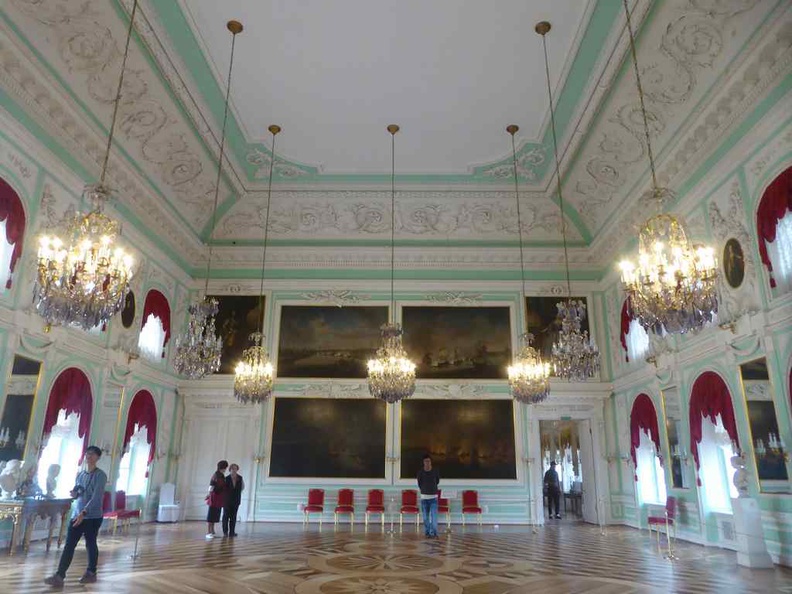
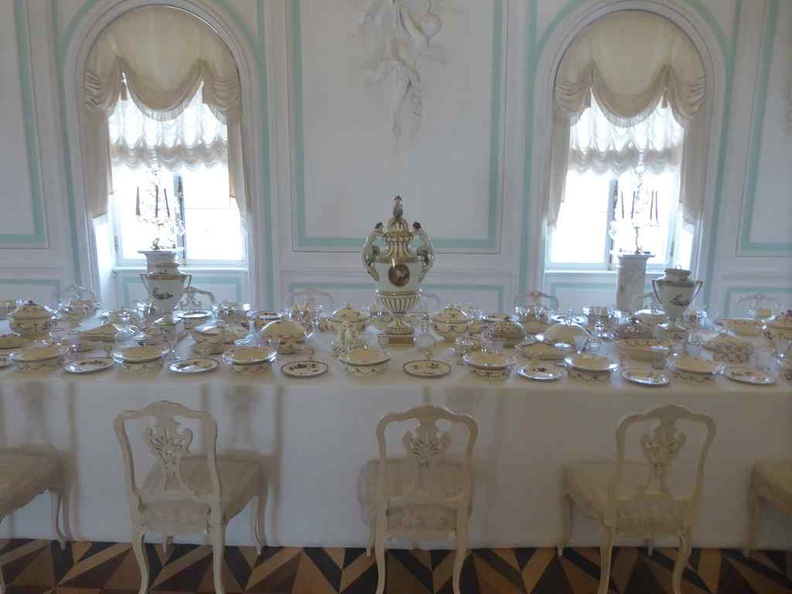
State rooms
The interior theme resembles a state residence of the era. Additionally, when inside, much of the palace lower floors are dedicated to guest services, you start off into a holding gallery and take a row of staircases up to the second floor. The palace is two floors high, not including a basement level.
Some of the state rooms have beautifully painted ceilings, while some have intricate chandeliers hanging from them with a white-washed ceiling with hand-detailed trimmings.
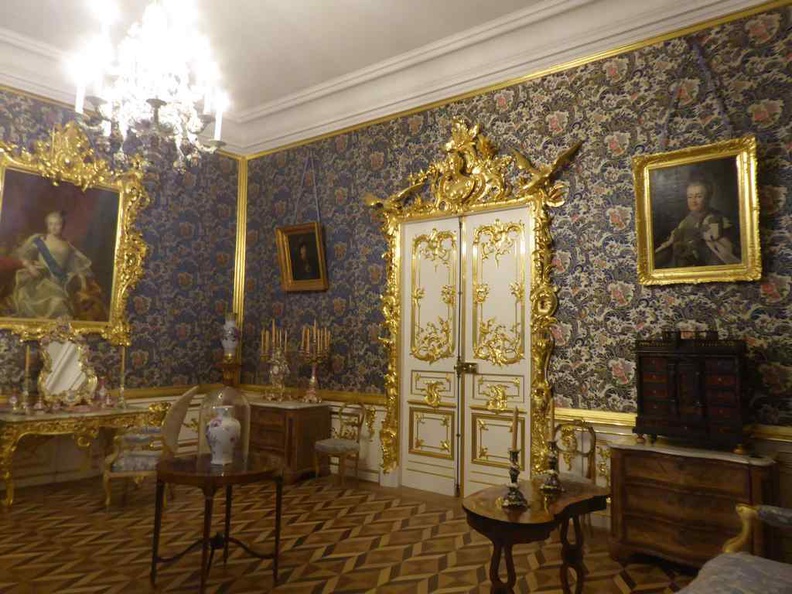
Also, it is complete with a number of bedrooms rooms, living and dining areas. Inside, you follow through a linear route bringing you through the various rooms and hallways.
Moreover, almost all the state rooms are located on the second floor. This comprises of bedrooms, hallways as well as large dining and event areas. There is a range of colour themes throughout the palace state rooms.
Starting with gold and white on the entry rooms, to floral wallpapers in the bedrooms. Study and reading rooms generally have a more earthen and wooden look with wooden wall paneling.
Also, Interestingly, there were a couple of rooms with walls of portraits and mirrors in place of wallpapers. It offers a unique perspective to an otherwise monotonous interiors of bling and gold.
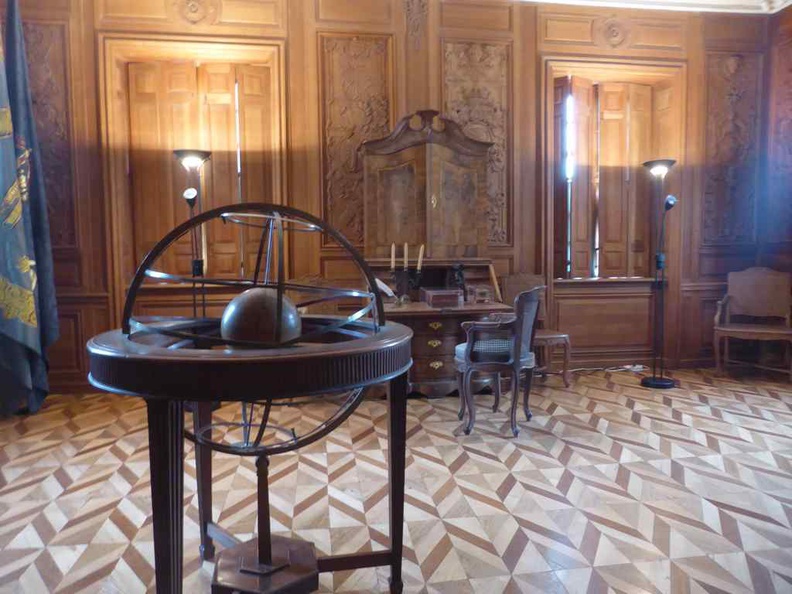
The lower gardens, bathhouse and fountains
When you are done with the palace, it is recommend to spend the remainder of your day touring the lower gardens at your own time. There is quite alot to see here in the gardens which can easily fill you in for a couple of hours.
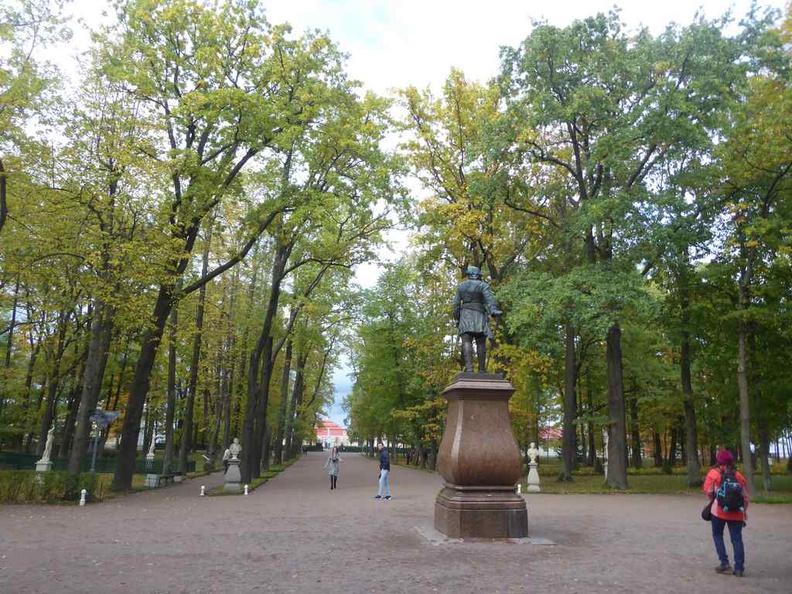
Adding on my brief intro to the lower gardens. I shall touch on this wonderland of greenery and flowers. These set of gardens forms up the bulk of the Peterhof gardens. It sits below the Peterhof palace in the direction towards to sea (Gulf of Finland). In comparison, it is about six times as large in land area than the upper gardens.
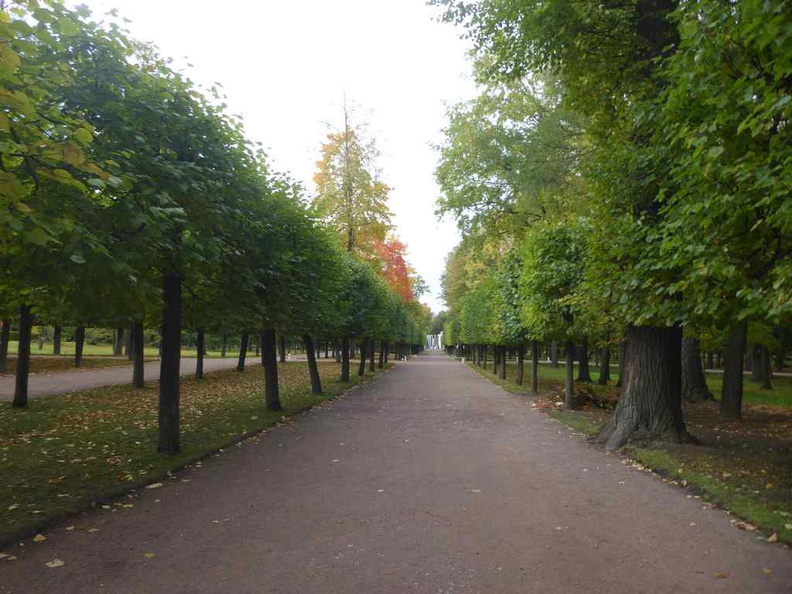
Furthermore, the gardens are laid out in a logical, but otherwise non-symmetrical layout. The palace Lower Gardens was designed with a formal French garden style typical of that in the 17th century. It comprises of sweeping vistas and ornate architectural decorations throughout the gardens.
Monplaisir Palace bathhouse
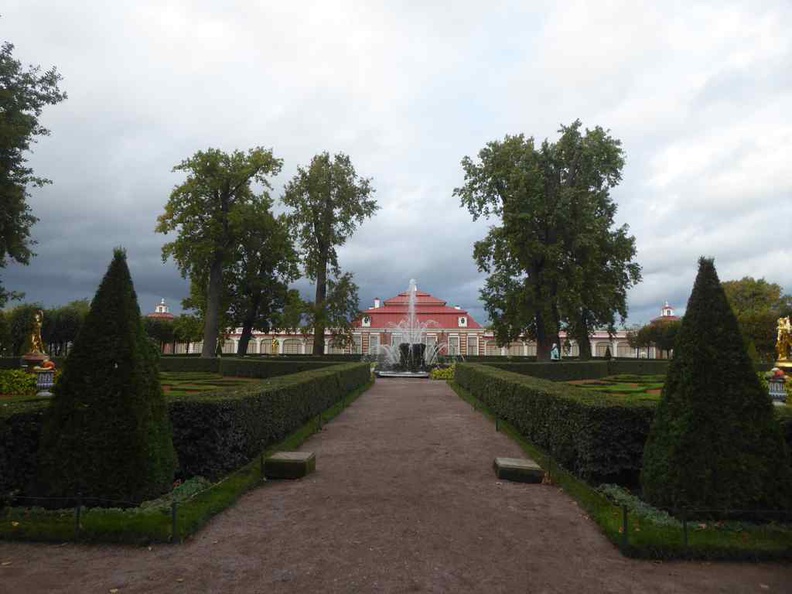
Moreover, the Monplaisir Palace bathhouse and gardens is one of the oldest structure in the vicinity. Today, within the bathhouse sits a secluded manicured garden tucked on the north eastern corner of the lower gardens.
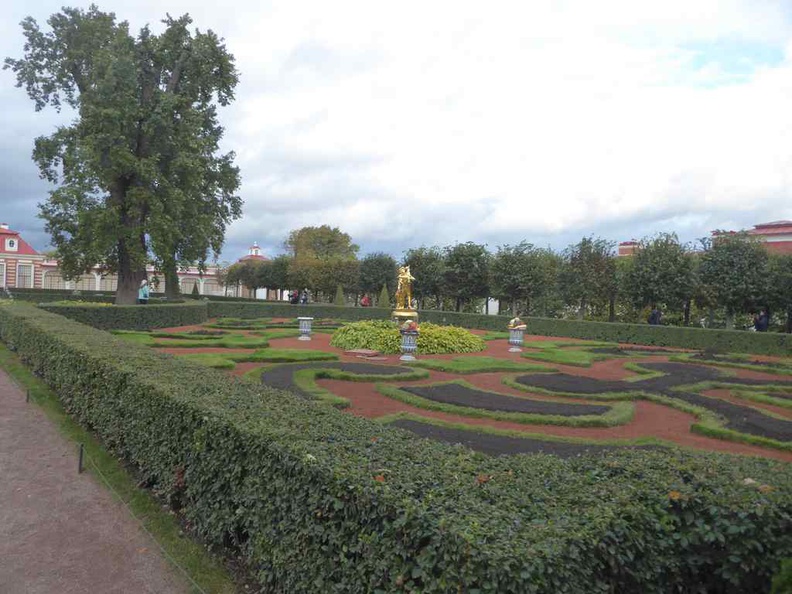
Also, the grounds are surrounded by hedges with accompanying mini fountains within. Also, a small beach side with sandy beaches sits adjacent to the bath block, as well as a balcony lookout point over the Gulf of Finland.
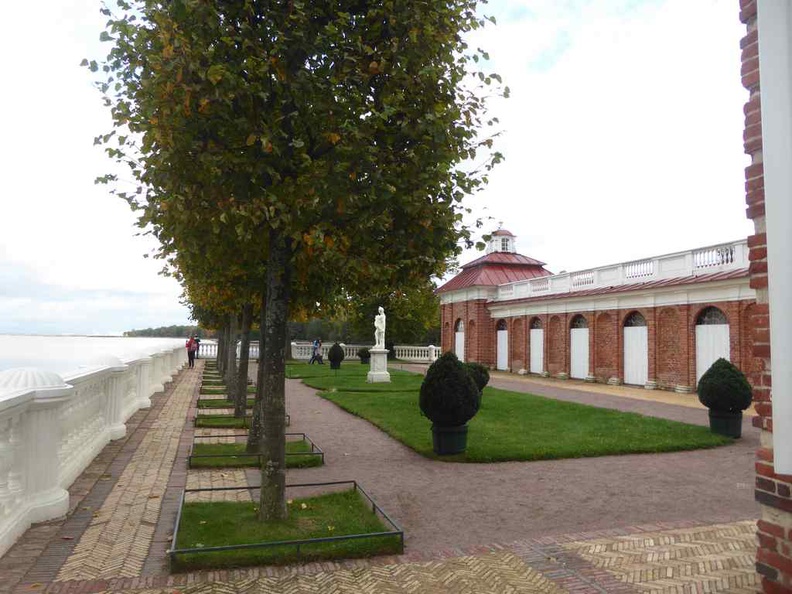
Fountains at every corner
There is plenty to see in the gardens. From the central grand fountain, flanking to the sides are long pathways leading to the other minor gardens within the lower palace garden grounds. Each of these path leads to their own points of interest.
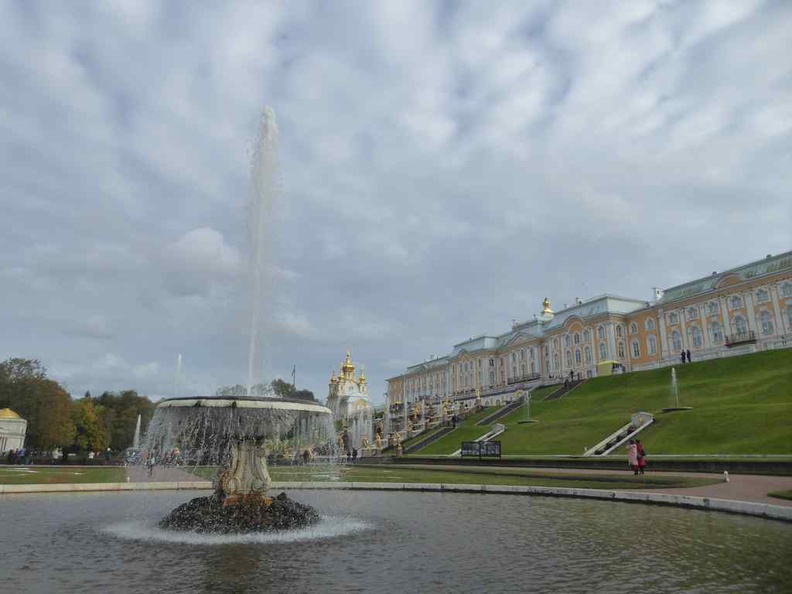
Also, these fountains are usually found at the ends of the juncture of garden pathways. One such example are Fountain Yeva and Adam which converges leading from the intersections of manicured tree rows.
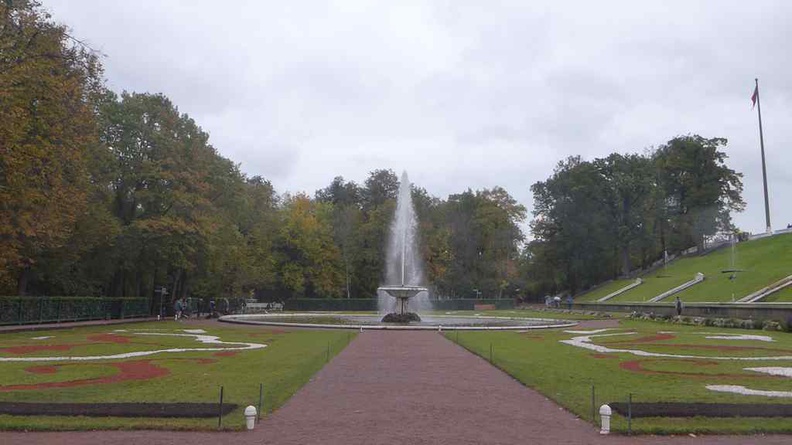
Rome Gardens
On the far East-side gardens is the Fountain Oranzhereynyy, a circular serpent fountain. There is also the Kaskad Shakhmatnaya Gora. It is a large cascading marble waterfall in the Rome section of the gardens with lines of roman-styled sculptures.
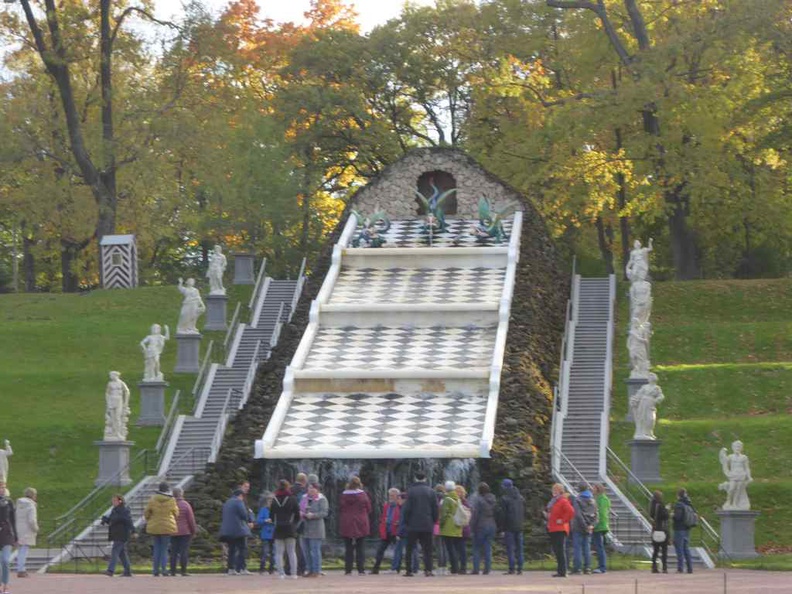
It is also where the Fountain Rome also resides. You can find flower beds here decorated with several free-standing sculptures.
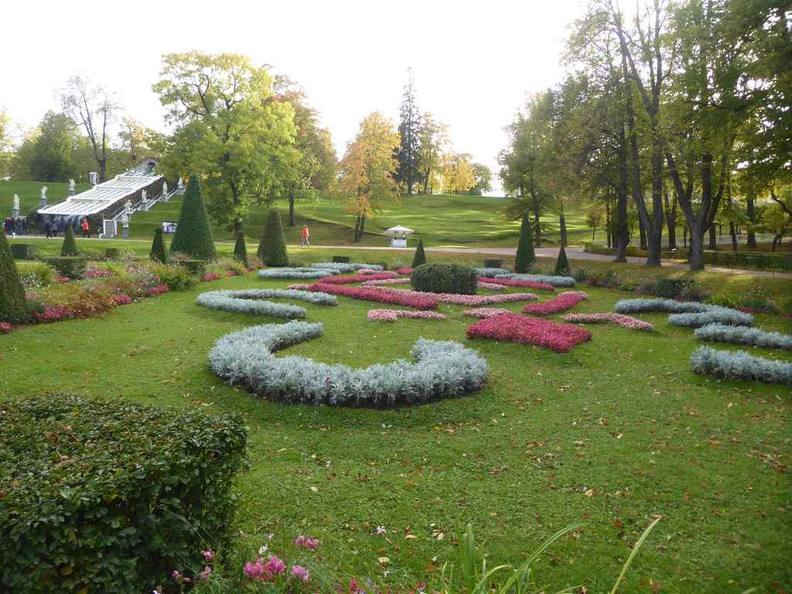
Notably, the fountains and gardens are much well taken care of than those in the public gardens. Furthermore, a highlight too is the L’vinyy Kaskad Lion fountain, it is a rectangular fountain themed with a lion on it. It is not uncommon to see these fountains surrounded by lines of manicured trees around them in the Lower Gardens.
Moreover, other interesting musings in the gardens includes a motion-sensor fountain near the bath area on the east side of the lower gardens. It squirts water over a walkway after you walk past it. Also, on the other west side of the lower gardens sits the Dvorets Marli building. The building sits behind a reflective lake which looks surreal.
Chill by the lake side
Moreover, this west side of the Lower gardens is the more quiet part of the gardens. There is a sense of tranquility at the reflection lake. Flanking the reflective lake by the Marli Palace is a raised walkway overlooking the water body. A line of manicured trees runs along its length by the seaside.
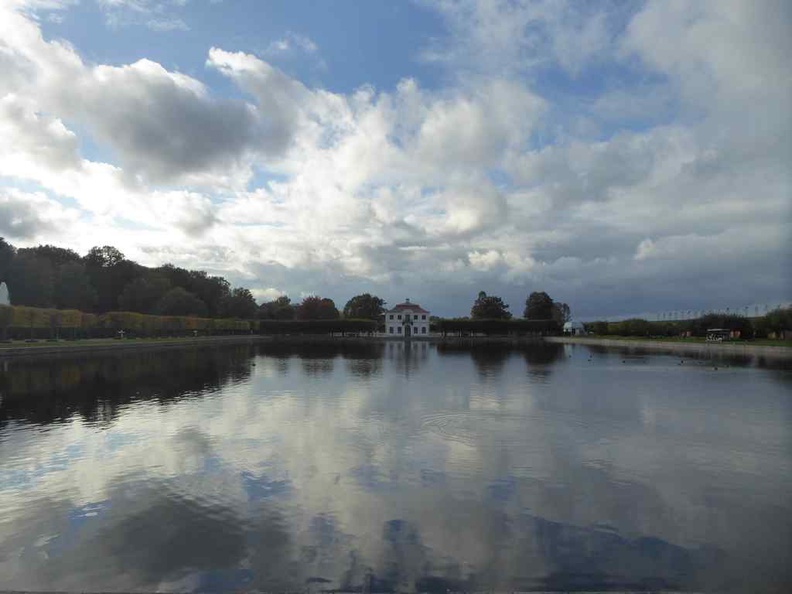
Also, here, you can find a small beach line runs alongside the sea- facing parts of the lower gardens. You can find the Hermitage Pavilion, a small house by the sea along here.
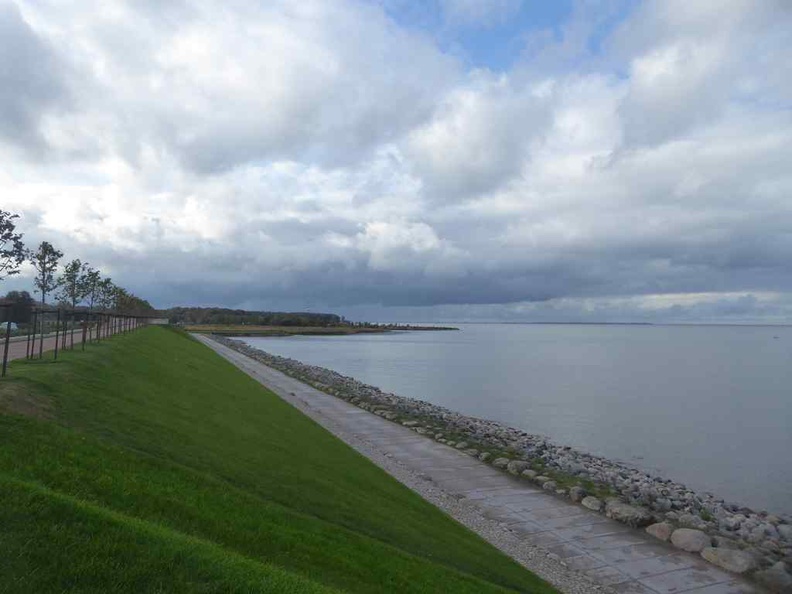
The paths here are nicely shaded with trees which makes it a nice place to relax by the bay looking into the Gulf of Finland. Also, sea traffic is not heavy with not too many boats passing by. It maintains the tranquility in the vicinity.
Getting back and opening times
During my visit, I timed my lower garden visit to coincide with the last or 2nd last ferry leaving the Jetty back to St Petersburg, at about 6pm. The ferry operators usually have extra boats on standby if the last ferry gets too full. Also, it is worth noting that Lower Park with fountains the gardens are open daily from 9am to 8pm, with last admission at 7:30pm. Do note that the fountains only operate from 10am to 6pm, with extended hours to till 7 pm on weekends. In contrast, the upper gardens are open to public with free admission daily from 9am to 8pm.
From my explorations, you can give the upper gardens a miss and stay within inside the paid lower garden area. The paid lower gardens are huge and expansive offer far more to see than the upper gardens. You don’t miss much not visiting the upper gardens.
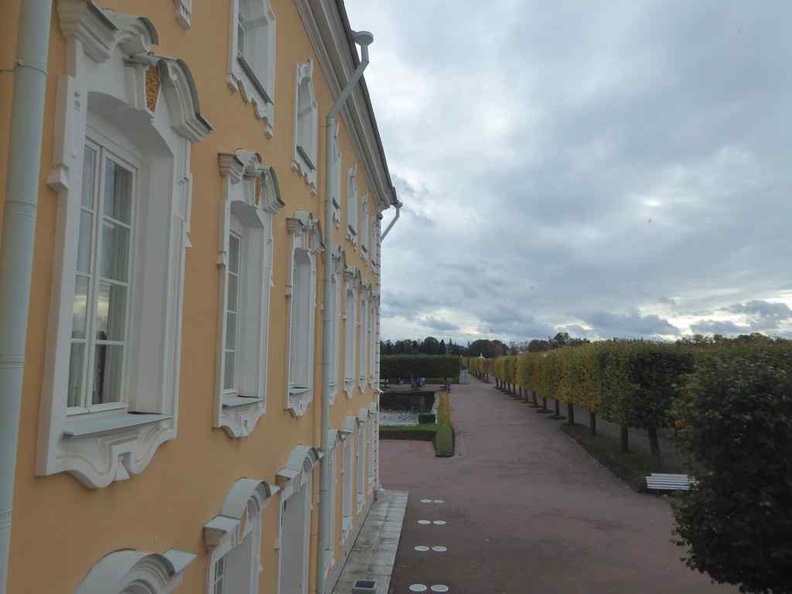
However, exiting into the upper gardens is your only way out if you were to travel back by road. Here, you can find the lone Fountain Neptun here which sits squarely in the manicured gardens with the Peterhof palace in the background.
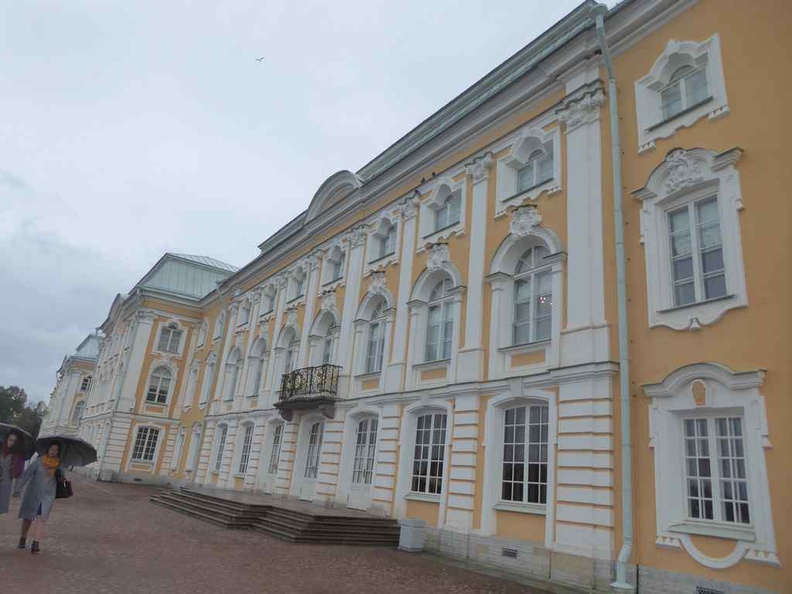
That’s all folks
Lastly, if you bought a return ferry ticket, your only choice is to exit via the lower gardens back to the ferry jetty. Do remember that there is no reentry once you exit. You can’t return back into the Palace and lower gardens here without having to buy a new ticket to get back to the Jetty.
All in all, St Petersburg Peterhof Grand Palace is excellent for an entire day out. The Grand Cascade and Samson Fountain each has their own wow factor which justifies the establishment as one of the must-see sights when you are in the Russian city of St Petersburg.
View more photos of Peterhof Grand Palace in St Petersburg St Petersburg in its gallery here.

